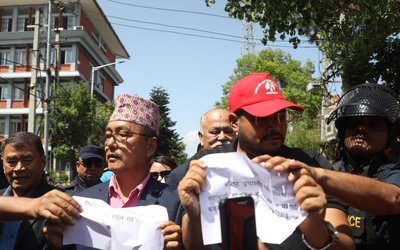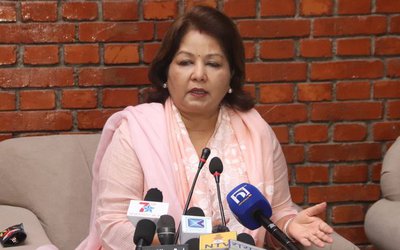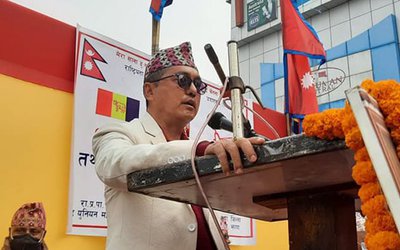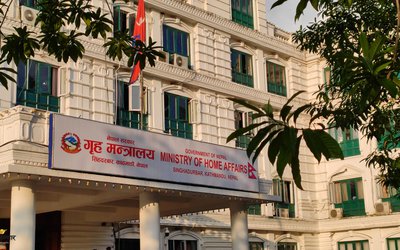More on News






Dr Rajiv Shah, Administrator of the US Agency for International Development (USAID), visited the International Centre for Integrated Mountain Development (ICIMOD) to discuss the role of science and technology in development and to experience firsthand the dynamic tools being developed to help monitor the environment and inform development decisions in the Hindu Kush Himalayas.
ICIMOD scientists presented interactive tools that have been developed as a part of the USAID-funded SERVIR Himalaya initiative, which was created to bring NASA’s satellite data together with ICIMOD scientists to develop tools that provide innovative solutions to meet development needs, including:
Forest Fire Detection and Monitoring System for Nepal, which can be used by forest managers to improve their ability to respond to forest fires;
Agricultural Monitoring to Support Food Security in the Eastern Himalayas, which can estimate crop yields to enable countries to take appropriate measures to avoid famine; Land Use and Land Cover Change for Nepal, which can be used to perform vulnerability assessments, food and livelihood security analysis, and to determine Nepal’s reference emissions level to support REDD programmes; and Glacier and Alpine Hazards to Development and Habitation in the Hindu Kush Himalayan Region.
“ICIMOD has shown how vital satellite information is to monitoring agricultural production, forest fires and responding to droughts and floods. Through partnerships like SERVIR, scientists will be able to use cutting-edge technologies to monitor complex challenges as they happen—helping to save lives and build more resilient communities,” said Dr. Shah.
According to a press release of Public Affairs Section Embassy of The United States, Dr Shah also took part in a high-level panel discussion with Dr Rabindra K Shakya, Vice Chairperson of National Planning Commission of Nepal; Mr Gagan Thapa, Member of Parliament and youth leader; and Dr David Molden, Director General of ICIMOD. During the discussion, panelists discussed possible ways newly available data from the region can be applied by decision makers in policy and development projects to benefit the people of the Hindu Kush Himalayan region.
Dr Shah stressed the importance of open and improved access to data, and the need for local ownership and engagement in development decision-making.
“It is hard to fix a problem that you cannot see,” Dr. Shah said, “and by harnessing science and technology, we can put critical information in the hands of the people most affected by natural disasters. At the same time, we can encourage civic participation in the planning and response processes—ensuring that government and citizens are collaborating on ways to create sustainable economic growth in the Hindu Kush region.”
Highlighting the role of science and technology in improving regional cooperation, Dr Molden noted, “many of the region’s biggest challenges are transboundary in nature. ICIMOD works to provide decision makers across the Hindu Kush Himalayas – from community leaders to policy makers – with evidence-based knowledge and a platform through which they can work together to address these challenges.”








